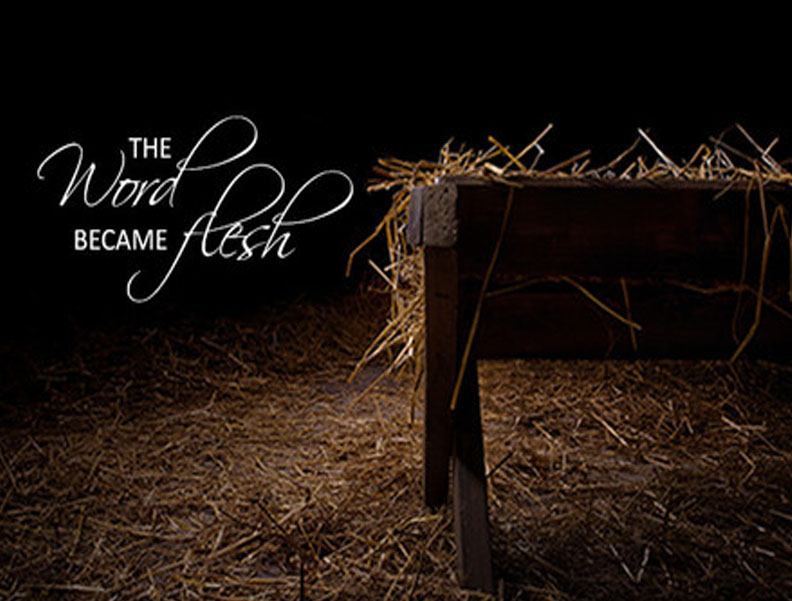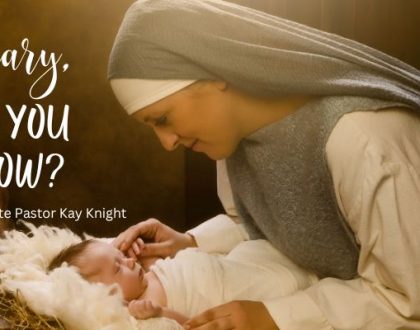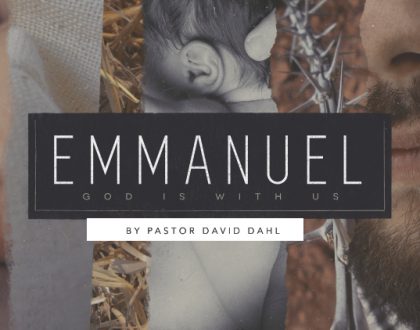And the Word Became Flesh

by David Dahl
And the Word became flesh and lived among us, and we have seen his glory, the glory as of a father’s only son, full of grace and truth. (John 1:14)
I’m a regular at the Tomah Community Table. Every Monday evening, everyone has an opportunity to share a meal – free of charge – at the Masonic Lodge donated, prepared and served by a number of organizations and families, Gloria Dei being one of them.
The people that gather there come from all walks of life. Some young and many older, some working and a number retired. Ask them why they come, and a common answer arises: “I didn’t want to eat alone.” One person shared that when she cooks for herself, the food doesn’t taste good. I added that the flavor of the meal reflects the quality of the company you share it with. She agreed. After all, the experience of a shared table is an experience of love.
And now you know the message of the Advent season. You’re not alone. God is with us. Immanuel.
During this season, we are opening an opportunity to share a meal together every Wednesday night, as there is something special about sitting at table and breaking bread together. We will then move into a time of worship – 30 to 45 minutes, and we will think more deeply and express our gratitude for God being with us to share space. We will celebrate the “incarnation.”
The incarnation almost sounds like a fancy flower. But it literally means “to put on flesh.” And refers to the truth that the eternal Son of God — Jesus – “put on our flesh and blood” and became fully human. John 1:14 puts it well: “The Word became flesh.”
At the incarnation, the eternal Word entered into creation as human.
Here’s a bit of what that means. Jesus became flesh. “Became” does not mean that he ceased to be God, as if that were even an option. He put on human nature in addition to His divine nature. I know this may sound technical to some of you. But think of it. Jesus didn’t pick between being God and being human. He could be both at the same time. “The Word became flesh.”
Flesh includes everything that makes up humanity — body, mind, emotions, and will. The Son of God did not only become like man; he actually became fully human.
So the eternal Son of God, without ceasing to be God, took on a fully human nature. This is what Christians have long called “the incarnation.” “The Word became flesh.”
This is the awesome truth: Jesus didn’t just become man because He could. This was no stunt just for show. The eternal Word became frail human flesh and blood to save us from our sin. And even more – to give us “a new birth to a living hope” (1 Peter 1:3) – a hope that restores our fellowship with God. And we experience this every time we share the Lord’s Supper together. It’s a constant reminder that Jesus shares table and breaks bread with us.
The incarnation is not only the way in which Jesus became Immanuel — God with us — but it’s an eternal testimony that God is for us without question.
I’m going to close with a passage from Augustine of Hippo, an early church father, as he reflected on the amazing acts of God taking on flesh for our sake:
Man’s maker was made man,
that He, Ruler of the stars, might nurse at His mother’s breast;
that the Bread might hunger,
the Fountain thirst,
the Light sleep,
the Way be tired on its journey;
that the Truth might be accused of false witness,
the Teacher be beaten with whips,
the Foundation be suspended on wood;
that Strength might grow weak;
that the Healer might be wounded;
that Life might die.
– Augustine of Hippo (Sermons 191.1)
Join us Wednesday evenings and Keep and Live the Faith!
-Pr. Dave
Recommended Posts

Mary, Did You Know?
January 10, 2024

Who God Called You To Be
January 09, 2024

God With Us
December 06, 2023
